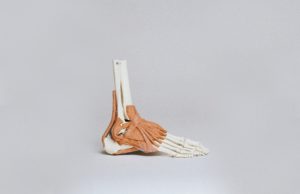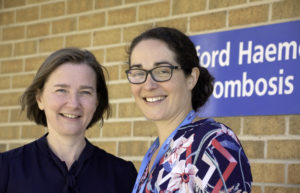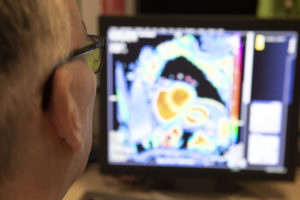New research from the University of Oxford has shown that platelet rich plasma (PRP) is not effective in treating acute Achilles tendon ruptures. The Achilles tendon is the most common tendon rupture treated in hospitals. Patients face long periods unable to work or participate in sport as ... READ MORE
News
All-singing all-dancing research at the Oxford Science and Ideas Festival
Oxford BRC-supported researchers have been sharing stories from their work through music and dance at IF Oxford, the Oxford Science and Ideas Festival. As part of the festival’s programme of over 100 events, the Oxford BRC supported a dance performance for primary school children and their ... READ MORE
Promising therapy for common form of eczema identified in early-stage trial
A new therapy that targets the immune system has shown promise for treating atopic dermatitis, the most common form of eczema, in a trial led by University of Oxford scientists. The small initial study, published in the journal Science Translational Medicine, is the first trial in humans to ... READ MORE
Severe reactions to grief can be predicted and treated in the first months following a bereavement
Memory, coping strategies and resilience immediately following a loss have been shown to predict the path of a bereaved person’s grief according to new research. The study, published in the Journal of Consulting and Clinical Psychology, also suggested that clinical intervention in the ... READ MORE
Study lays groundwork for review of digital interventions to tackle loneliness
Researchers at the NIHR Oxford Biomedical Research Centre (BRC) have produced a protocol to carry out a review and meta-analysis of the various digital technology interventions to address the growing problem of loneliness. “Loneliness is an emerging public health problem, associated with social, ... READ MORE
Study probes effectiveness of efforts to involve patients and public in changing research agenda
Projects that involve patients and the public as a way of determining health research priorities vary considerably in the extent to which they influence what research is actually done, according to research supported by the NIHR Oxford Biomedical Research Centre. The research aimed to assess ... READ MORE
Researchers find new cells that repair tissue
Researchers at Oxford University have discovered that a newly discovered group of cells can help repair tissues in the body. The researchers, who are supported by the NIHR Oxford Biomedical Research Centre, say these cells, which are abundant in our bodies, could be harnessed to help heal ... READ MORE
Oxford haematologists win national awards to further their research
Two consultant haematologists at the Oxford Haemophilia and Thrombosis Centre (OHTC), based at the Churchill Hospital, have been awarded funding for their research as part of a new national scheme. Dr Nicola Curry and Dr Susie Shapiro were among the recipients of the new Clinical Academic ... READ MORE
Heart rate rise and blood pressure drops during pregnancy not as dramatic as previously thought
New analysis from over 36,000 healthy women in 20 countries suggests that physiological changes during pregnancy may not be as dramatic as traditionally taught. However, blood pressures do appear to be increasing year on year. Medical text books are based on data that is now over 40 years old. ... READ MORE
AI identifies ‘fingerprint’ that predicts heart attack risk
Oxford researchers have developed a new biomarker – derived through artificial intelligence analysis of routine CT scans – that can identify people at high risk of a fatal heart attack at least five years before it strikes. The researchers, who are supported by the NIHR Oxford Biomedical Research ... READ MORE
- « Previous Page
- 1
- …
- 48
- 49
- 50
- 51
- 52
- …
- 95
- Next Page »








